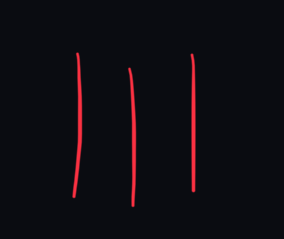If you are a young student in composition capable of great things ( i mean 12 years old…)you need more memory ram and disc space in your mind as what i have on my mac studio ultra.
You have to watch videos carefully , mostly as the complement to establish in your head the content of what you read, prioritizing reading . And by reading i mean here any situation where words are decoded into THOUGHTS that require your full mental investment , so much as a score does, and where you are forced to acknowledge that you know absolutely nothing about the topic you thought you know about.
And this is the contrary of videos designed to validate your “impressions of knowledge” over and over! Namely, without turning “impressions of knowledge“ into adequate concepts of a real and existing thing – and adequate presupposes : a coherently (as possible) organized structure of information.
To do this, to achieve knowledge of your art, it is required a process where you have to be actively invested, and invested in a very speculative point of view. One of the most fascinating creators speculated about the sensorial foundation of their material: Gesualdo, Scriabin. Speculation is based on genuine curiosity and admiration; this deep affection towards the infinite of the world as source of matter – that is nothing more than a sign of a loving soul – is foundation for the process of demonstrating that something is real. And something is revealed as real – just as yourself – only by testing it in a ruthless dialectic of contrary ideas. So much as a sword is made on fire.
If you don’t read, your imagination is dead. On computer you might have powerful softwares, but if you can’t imagine two bars of music, you can’t make it be born from your soul, and in single flowing act of meaning.
No money can pay a vision, and no soul can refuse to hear it.
The composer without deep abstraction will not develop a deep imagination, since abstraction is nothing more than the capability of representing the formal structure of imagination in logical terms.But the contrary is also true: the imagination (capability to represent a possible sensorial content) exercises logical aspects relevant to musical composition, because it is entirely based on abstractions of content, while pure logical thinking lays in abstractions at the level of pure form (and even the form of the content as such).
This means, when you are playing rpg (table rpg i mean), and you are capable of imagining a story for 4 hours (like I did…), you will experience what is necessary to develop musical ideas easily: the capability of holding a complex structure of possibilities at once in your head, but according to your own will (or unconscious).
Great composers were great readers! Reading is a composer’s way to conciliate with silence.
I don’t see reading as the salvation.
Many books are a waste of time and you better hear than read them. You can read and perfectly understand so much harmful content, and you can read badly the best ideas. There are different techniques and purposes when it comes to reading. There are even reasons to pause or even absolutely stop reading entire books as well, and that would especially apply for some compulsive readers and especial cases – as it does now for me!
However, skillful thinking might be the salvation.
And unless you are reading a web of thoughts, while you follow the speed of your own concentration, you are not reaching the deep understanding required to actively think them enough. It is therefore a game-changer to understand that when you are young, while you read, you are author – not slave – of your own cognitive development, especially as a composer motivated by natural intelligence.
